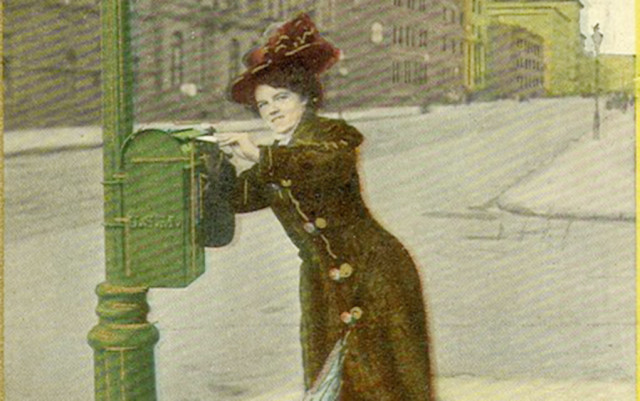
‘Treatment’ for emerald ash borer worse than the problem
I appreciate the Weekly’s overview of the emerald ash borer plague that will probably kill all the ash trees in Boulder and other Front Range cities. [RE: Boulderganic, July 28, “Slow-moving disaster reaches Longmont”]
Mollie Putzig’s article mentioned “treatment,” but what does that mean?
It mostly means injecting or spraying ash trees with neonicotinoid pesticides, repeatedly, year after year. For homeowners, that would cost hundreds or thousands of dollars spent on each tree.
It could also lead to the disappearance of bees from Boulder. Neonics are long-lasting, very potent and extremely deadly to bees. Germany has banned neonicotinoid seed treatments and other countries have severely restricted their use in agriculture in general. The expensive “treatment” now being recommended by too many local arborists will have consequences much worse than the problem it is meant to solve.
Treatment of ash with pesticides will not work in the long run. We cannot poison the emerald ash borer out of existence. We may kill this year’s crop of bugs in our trees, but others will come and replace them. The replacement bugs will evolve and gradually grow more and more resistant to our chemicals. We will have spent lots of money and killed many bees, only to lose the war.
I have an excellent, beautiful ash on my front lawn. It provides important shade to my property. Until my ash dies or becomes decrepit and potentially dangerous, I’ll give it water and support.
I hope it lives and prospers as long as possible. But it’s pointless and bad for our ecosystem to spray or inject it with pesticides. Instead, I’ll plant a new tree, or two, in its shadow. I’m now trying to decide what species to plant. It won’t be an ash.
Gary Sprung/Boulder
TPP = Corporate rule
If passed, the overarching achievement of the TPP will be to vastly increase the power of multinational corporations and to reduce the power of governments in the TPP countries. The motto of the TPP is clear:
“We, the corporations, rule.” The power grab is almost beyond comprehension. The TPP drafters set up an unaccountable panel of trade lawyers who enforce the agreement. They will be able to fine countries for any law that interferes with the “future profits” of a foreign corporation. They can make whatever decision they like and there is no appeal.
For example, a Canadian oil company could sue the U.S. government in one of these panels if Boulder County passed an anti-fracking ban. Or a company could sue if the anti-fracking ballot initiatives pass this November. The panels are biased toward the corporations and the lawyers revolve between being on the panels and representing corporations against countries.
The conflict of interest is mind boggling and demonstrates the absolute arrogance of the top 1 percent.
Protections for corporations are ironclad and enforceable with threats of huge fines. Protections for labor and the environment are weak and unenforceable. This is not surprising since the TPP was written with the input of 600 mega corporations and their trade associations. The suggestions of labor and environmentalists were flicked away like some inconsequential nuisance.
The vast majority of Americans oppose the accelerating corporate power grabs in all spheres of our lives and the consequent destruction of any semblance of democracy.
Congressman Jared Polis voted to Fast Track TPP. Fast Track is a deeply undemocratic process, meant to undermine Congress’ Constitutional authority over trade and to push the TPP through Congress without meaningful oversight or discussion. Although the text of the TPP was released on Nov. 5, 2015, Congressman Jared Polis still hasn’t stated his position on it. What is he waiting for?
We the people must pressure Congressman Jared Polis now to take a firm position against the TPP. Also tell him to take a strong position againt a vote in the lame duck session. Call him as often as you can at 303-484-9596. We have a right to know whether he will be voting for corporate elite or the people.
To get involved locally contact me at [email protected] (Rocky Mountain Peace and Justice Center) or 720-509-3378. For more information on TPP, go totradewatch.org.
Carolyn Bninski/Boulder
Protect the Prairie Dogs
“People seeing the beauty of this valley will want to stay, and their staying will be the undoing of its beauty.” – attributed to Chief Niwot
Imagine that you are Chief Niwot, standing near what is now Lee Hill and Broadway. Your life is free from technology. You are listening to wind born symphonies and the silence of shadows. Prairie dogs are the piccolos in your symphony. They also help to keep the beat.
Prairie dog colonies play a crucial role in maintaining the health of the prairie ecosystem. Scores of other species are attracted to and benefit from these colonies. You might have heard one. It is the melodious Meadowlark. The black-footed ferret is another example. Its re-introduction to Boulder County relies on sufficient acreage of healthy prairie dog colonies.
“Out of an estimated 100 million acres of active black-tailed prairie dog colonies, about two percent remains.” This quote is from the website: “Prairie Dogs on OSMP — Boulder, Colorado.”
Habitat scarcity is why prairie dogs are seeking shelter wherever they can find it, including the scrap of land near Lee Hill and Broadway, the former Armory site. The colony at this site might soon be gasping for its life, literally, because of planned development.
The colony at Lee Hill and Broadway should be relocated, not exterminated. Extermination is a another step to extirpation. The black-footed ferret was extirpated from Boulder County. Will the prairie dog follow? Will the symphony that Chief Niwot heard be silenced?
Kristen Marshall/Boulder














